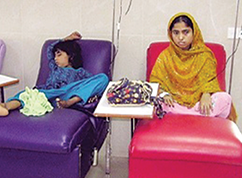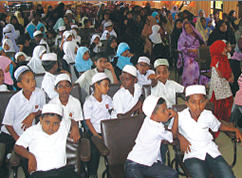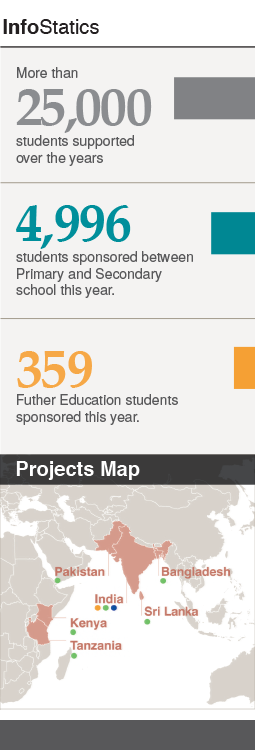Standard Operating Procedures for Electing the President of
The World Federation of KSIMC
(Adopted as a standard operating procedure for the Presidential elections of the World Federation of KSIMC by the Constitutional Conference on Fourth day of December of the year Two Thousand and Ten and as allowed by the Conference amended by the Executive Council of The World Federation this Fifth day of December in the year Two thousand and Ten in Birmingham, (United Kingdom). The amendments were ratified by the Thirteenth Ordinary Conference held in Dar es Salaam on Twenty-seventh to Twenty-ninth day of May of the year Two thousand and Eleven.
Vision Statement:
‘The World Federation exists to achieve the pleasure of Allah SWT by developing spiritual and vibrant communities serving humanity.’
Mission Statement:
‘The World Federation enables its member institutions to promote the values and practices of the Islamic Shia Ithna Asheri Faith for the spiritual and material well being of humanity at large.’
‘We Exist to Serve’
INDEX
1. Introduction
2. Electoral Process
3. The Duties of the Electoral Commission
4. The Formation and Workings of the Electoral Commission
5. The Electoral Register
6. Elections
1.
Introduction
1.1
The objective of this document is to provide a Standard Operating Procedure for electing the President of the World Federation of KSIMC within the framework of the World Federation Constitution as amended by the Constitutional Conference in October 2003 and December 2010.
1.2
This document will take effect as a standard operating procedure only after formal adoption by the Conference. All definitions under the Constitution shall also apply to this document.
1.3
The World Federation constitution has explicitly provided for the involvement of the Electoral Commission in the electoral process (clause 26) and further provides the following guidelines:
• Clause 20.1.1 the invitation to the candidates;
• Clause 20.2 the process to be adopted once candidates have been nominated;
• lause 20.3 the counting of the votes and the declaration of the results and
• Clause 20.4.3 the process if no eligible nominations have been received by the due date.
2.
The Electoral Process
2.1
At least 100 days before the end of term of the President, the Electoral Commission will invite nominations for the post of the President.
2.2
The Elections are to take place on one of three days selected by the Electoral Commission in consultation with the Members and the Executive Council.
2.3
The Electoral Commission will invite each member Federation or Constituent Member’s Managing Committee to choose the most suitable day from amongst the 3 [three] days declared along with its returning officer and inform the Electoral Commission of the same within 30 days.
2.4
The Electoral Commission must receive eligible nominations within 30 days from the invitation for candidates. Such nominations must be accompanied with a signed consent letter from the nominated candidate.
2.5
A Candidate for presidential elections must be a registered member of a Constituent Member and must be nominated by any member Federation.
2.6
If no nominations are received then the process as set out in clause 20.4.3 of the World Federation constitution will take effect.
2.7
If only one eligible nomination is received then the Electoral Commission will declare the candidate duly elected unopposed.
2.8
If more than one eligible nomination is received then the Electoral Commission will activate the electoral process within 7 days after the closing date for the nominations.
2.9
Upon activation of the electoral process (per 2.8 above), the Electoral Commission will send to all Constituent Members the Electoral Register along with the requisite number of ballot papers. The same shall be sent by approved courier (DHL, FedEx or TNT) and will have enclosed a prepaid return courier waybill bearing the Electoral Commission’s address for members to return all the ballots.
2.10
The members will organise the elections on one of the three days set and agreed by the Electoral Commission in their respective areas and submit its votes to the Electoral Commission by return courier (using the prepaid approved courier waybill provided) at least 30 days before the end of the term of office of the President, as per Constitutional clause 20.5.2. As a recommended practice the election results from each member Federation or Constituent Member should be submitted within 48 hours of the election taking place.
2.11
The Electoral Commission will announce the result of the election for the post of President at least 5 days before the date set for the ensuing Ordinary Conference.
3.
The Duties of The Electoral Commission
The duties are as set out by the constitution of the World Federation of KSIMC:
3.1
Clause 20.1.1 At least one hundred (100) days before the end of the term of office of the President, the Electoral Commission shall issue a notice to all members inviting written nominations within thirty (30) days of such notice for a candidate for the office of the next term of three years.
3.2
Clause 20.2 The Electoral Commission shall within a period of seven (7) days after the closing date for the submission of the nominations, send to members all such nominations received by him in response to the notice and ask all members to vote on the nominations. Each member Federation or Constituent Member shall submit its votes to the Electoral Commission by approved courier at least 30 days before the end of the term of office of the President. As a recommended practice the number of votes from all members (Federations or Constituent Member) should be submitted within 48 hours of the elections taking place.
3.3
Clause 20.3 The Executive Council of the Federation shall appoint two Executive Councillors to witness the counting of the votes; these individuals shall be known as the Returning Officers. The Electoral Commission will declare the candidate receiving the largest number of aggregate Electoral College points as the President-Elect of the World Federation. In addition, the Returning Officers shall not be part of the Electoral Commission.
3.4
The nominations are to be received by the Electoral Commission and this will be at the address of the World Federation Secretariat.
4.
The Formation and Workings of the Electoral Commission
4.1
The Electoral Commission will have the objective of ensuring the smooth and fair running of the electoral process, its duties set out in the Constitution, and it shall be accountable to the Executive Council with respect to the application of the electoral process set out in this document.
4.2
The Conference shall elect 3 [three] Commissioners who will form the Electoral Commission.
4.3
The Commission will be responsible for creating and maintaining a Central register of voters, which will be based on each Constituent Member’s eligible voting member’s list.
4.4
The Electoral Commission will monitor and conduct all The World Federation non-presidential elections. The Electoral Commission’s duties shall end on the election of a new Electoral Commission.
4.5
The Electoral Commission will work on a simple majority where there is ambiguity.
4.6
The Commission’s address will be the same as The World Federation Secretariat.
4.7
Whilst utilising the facilities provided by The World Federation Secretariat, the Commission will at all times maintain its independence and autonomy.
4.8
The Commission will be responsible for all its correspondence.
4.9
The Commission will ensure that the register complies with all relevant UK legislation, such as the Data Protection Act.
4.10
The Commission will monitor the usage of The World Federation resources by Candidates.
4.11
The Commission may be requested in writing to provide certain assistance, such as, use of the World Federation website for Candidate manifestos and/or question and answers. In addition, each candidate will be allowed a maximum of two electronic mail shots to individuals on the register without charge. A single postal mail shot campaign may also be carried out provided the candidate reimburses the cost of such an exercise. The text and material for this will be prepared by the Candidate and not the Commission and be delivered to the Secretariat for fulfilment, labelling and posting.
4.12 <
span style='font-size:10.0pt;font-family:"Verdana",sans-serif'>Serving Officers including but not limited to Office Bearers, Councillors, Assistant Secretary General(s) and their team members, members of staff and volunteers may be candidates and do not require to relinquish their posts, as the electoral process is completely independent of the Secretariat.
4.13
If the Electoral Commission is informed of any Election irregularities; it will then within 24 hours inform the Secretariat which in turn will inform the Executive Council within 48 hours of it being notified
4.14
Complaints from Candidates or members regarding the electoral process will be subject to arbitration as highlighted here in below.
Appeal process
[a] All such complains must be in the first instant brought to the attention of the Commission in writing within three days of the completion of the final day of the election/s in question.
[b] On receipt of such a complain, the Commission will appoint up to three independent arbitrators and ask the parties concerned to sign a declaration accepting to be bound by the decision of the arbitrators and to refrain from public statements thereafter. No retorts shall be responded to by either party under any circumstances, be it provoked or otherwise. The parties will also confirm their email and fax contacts to which future correspondence sent will be deemed to have been received by them subject to any evidence to rebut this assumption.
[c] From the point of filing the original complaint, the party would have 1 week (or as stipulated by the arbitrator/s) to submit their evidence and arguments in support of their complaint and the remedy they seek.
[d] The arbitrators would within 72 [seventy two] hours of receiving this submission decide if there is a genuine issue in which case the submissions of the complainant would be forwarded to the second (or more if applicable) party to present their position with regard to the complaints made including any evidence and/or substantiation within one week from the date of the Arbitrator(s) invitation.
[e] The complainant would then have one week to reply to the other parties’ submissions. On receipt of this reply, the Arbitrators will provide a copy to the other party and close the Arbitration for private deliberation. The Arbitrators will then issue a written award within five days of closing the Arbitration process and forward this to the Electoral Commission and all the parties to the Arbitration.
[f] At any point after receiving the other parties reply submission to the complainants original submissions, the Arbitrators may, in the interest of amicably resolving the matter and at their sole discretion, choose to bring both parties together, either physically or otherwise as appropriate and agreed by all the parties, to seek further clarification and resolution of the matter before them.
[g] The Arbitrators will limit themselves to issues pertaining to the electoral process and specifically exercise jurisdiction over the matter placed before them.
5.
The Electoral Register
5.1
The Electoral Commission is responsible for maintaining an electronic Central register of voters entitled to vote for the President of the World Federation of KSIMC. The Electoral Commission may not forward this to their personal email address and cannot keep these records outside of The World Federation Secretariat offices. Such register will be made available to the Electoral Commission during working hours and will be made up of a list of eligible voters of each member Federation or Constituent Member and shall be provided by the member based on their records.
5.2
It will be the responsibility of the Constituent Member to provide the Electoral Commission with the eligible voter’s list at least 120 [one hundred twenty] days prior to the end of the term of the President. Such register will include the name and address of each voter and will include other information [unless prohibited by local laws] based on the rules applicable within the Constituent Member’s governing rules including but not limited to female voting, age limits and lapsed subscriptions. The Commission may at its sole discretion undertake a validation of such register provided by each member.
5.3
Seven (7) days after the closing date for the submission of the nominations, the Commission will re-send to each member the registered voter list provided to it initially by the Federation or Constituent Member along with the requisite number of ballot papers. The registered voter list will be universal for all World Federation members to ensure uniformity of information.
5.4
The registered voter list originally provided to the Commission by the member Federation or Constituent Member will be the basis for those eligible to vote for the World Federation Presidential elections.
5.5
The cut off date for providing the list of eligible voters of each member will be 120 days before the end of the three year term of the President.
5.6
All information on the Register will be confidential and only the Commission will have access to it.
5.7
The Commission will make information available to The World Federation to assist with planning and policy making.
5.8
Each candidate will be availed the facility to carry out a maximum of two electronic mail shots and one postal mail shot for campaign materials to those individuals on the register. This will be done via the Commission as the mailing list or database of registered voters will not be released.
6.
Elections
6.1
The Electoral Commission will set the date of the Election in consultation with the Regional Federations and the Executive Council. The Elections will take place in all member Federations or Constituent Members on one of these three days without exception. In the event of a major natural disaster taking place on the selected polling day in a Constituent Member rendering it impossible to conduct the election, the Commission may allow the election date within the member Federation or Constituent Member affected to be postponed to another day, not later than 32 days to end of term of the President. Such confirmation must be sought from the Commission in writing.
6.2
The Commission will send each member the list of eligible voter’s from the Electoral Register along with the requisite number of ballot papers which must be the vehicle to cast the vote.
6.3
The Returning Officer selected by each of the Constituent Member’s Managing Committee will oversee the presidential elections and will be responsible for the counting of the ballots and announcing the results locally.
6.4
The original ballot papers used to cast the vote and the eligible voters list along with the result notification signed by the Returning Officers of the Constituent Member or Federation, must be sent by approved courier to the Electoral Commission at the Secretariat’s address. As a recommended practice the election results from each member Federation or Constituent Member should be submitted within 48 [forty eight] hours of the election taking place.
6.5
Proxy, Postal and all types of electronic voting will not be permitted.
This standard operating procedure sets out additional guidelines within the framework provided in the Constitution of The World Federation as amended at the Constitutional Conference held in Birmingham in December 2010.








